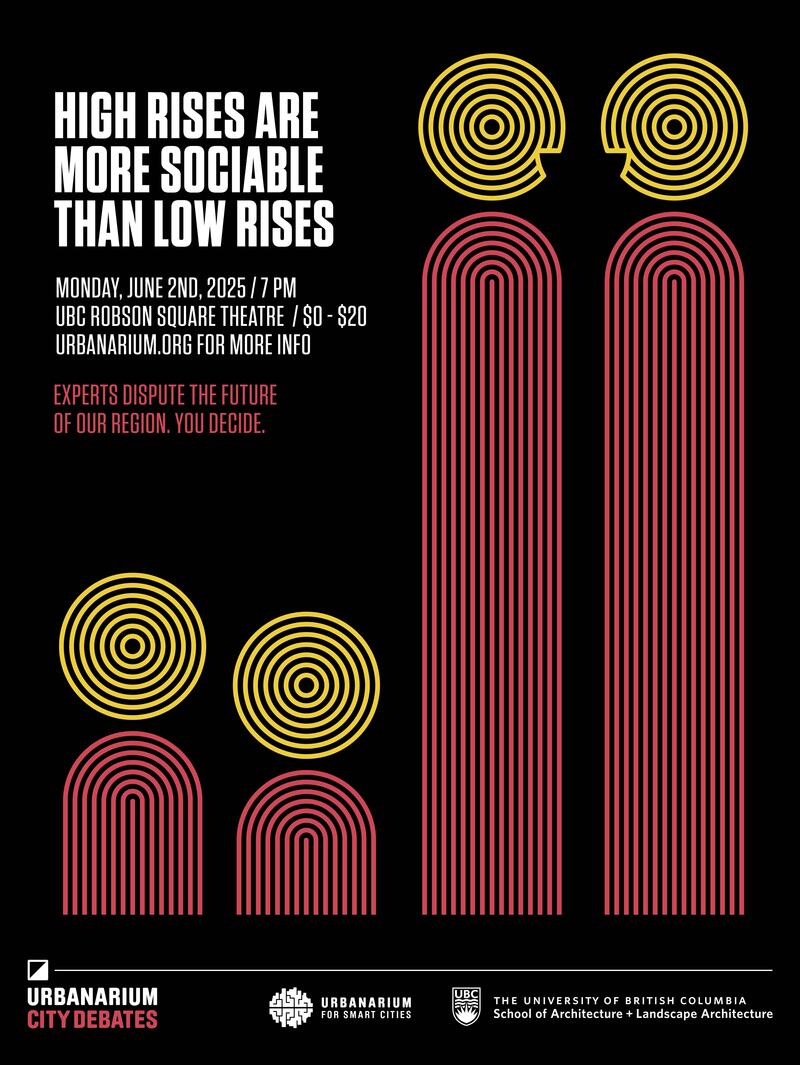Urbanarium City Debates
City Debate #19: HIGH RISES ARE MORE SOCIABLE THAN LOW RISES

HIGH RISES ARE MORE SOCIABLE THAN LOW RISES
Which form of housing development supports a stronger community fabric and greater sociability? Do low-rise housing forms make it easier for neighbours to get to know each other and build stronger social connections? Or does being more spread out make it harder to stay connected? Do the higher population densities of condo and rental towers make it easier for residents to form tight social networks? Or does the high-rise form lead to residents being surrounded by people, but all avoiding eye contact in the elevator?
Organized by: Urbanarium,
UBC School of Architecture and Landscape Architecture
Sponsored by: UBC SALA, The Faculty of Applied Science
Pro
Vincent Delfaud
Vincent Delfaud is the Vice President of Design at Bosa Properties where he leads the in-house Design Studio and Sustainability, integrating architecture and interior design across all project phases and asset classes. He has over two decades of experience on landmark projects across Europe and North America, including the Shard, Google HQ, and Vancouver’s Stack.

Mari Fujita
Mari Fujita is a designer and Associate Professor at UBC SALA. Her work explores emergent urbanism, social justice and living heritage, with a focus on Vancouver and other regions undergoing rapid growth or decline. She collaborates with community partners in Vancouver’s DTES to imagine shared futures through community-engaged design. Mari maintains the design practice Fubalabo and creates product design through the brands Maiku Brando and Maikout.
Con

Mitchell Reardon
Mitchell is Director, Urban Planning, at Happy Cities. He is an award-winning urbanist who specializes in healthy urban planning, design and engagement. Fostering sociability - in a variety settings and scales - is fundamental to the work he and the Happy Cities team do. His insights have been featured on Next City, BBC, Wired and more.

Robyn Chan
Robyn is the Project Manager for the False Creek South Neighbourhood Association, where she guides grassroots community planning strategies for retaining and expanding affordable housing. She has a Masters of Urban Studies, is past-Chair of the Vancouver City Planning Commission, and serves on the boards of Park People and the Canadian Network of Community Land Trusts.
Pre-debate poll results
Pro
19%
Con
81%
Post-debate poll results
Pro
28%
Con
72%